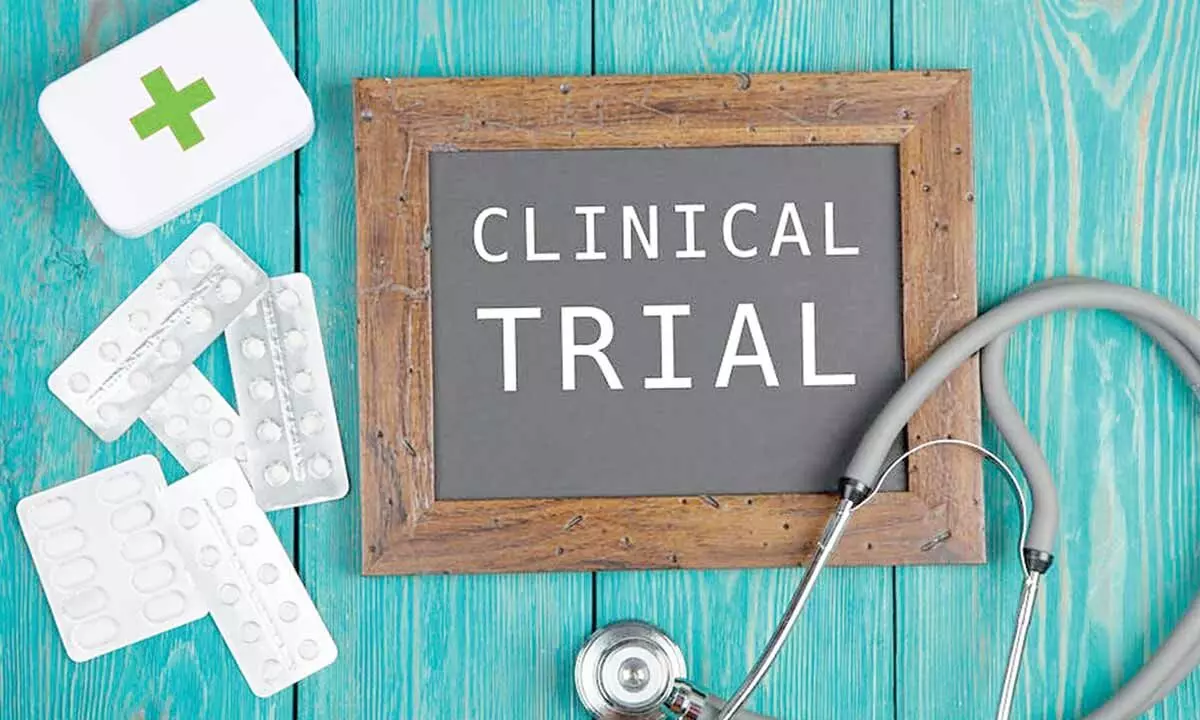ICMR's move to develop centres for phase-I clinical trial augurs well for pharma industry
The setting up of clinical trial centres across India will improve therapeutic regimens and ensure advancement in medical practice that is evidence based
image for illustrative purpose

The Indian Council of Medical Research (ICMR), the apex body in India for the formulation, coordination and promotion of biomedical research, will soon develop centres across the country for phase I clinical trials consisting of medical institutes across the country. The setting up of these centres will definitely improve therapeutic regimens and ensure advancement in medical practice that is evidence based. These clinical trial centres, for which the ICMR will provide technical, financial, and administrative support, will function as standalone facilities capable of effectively executing phase I clinical trials of the highest quality.
Last year, the ICMR had notified medical institutes selected for participation in the Indian Clinical Trial & Education Network (INTENT). The institutes were selected under Advanced Centre for Clinical Trial (ACCT), Regional Clinical Trial Unit (RCTU), ICMR-Centre for Clinical Trial (ICCT), Specialty Centre for Clinical Trial (SCCT) and Knowledge Partner for Clinical Trial (KPCT). For setting up the centres for phase-I clinical trial, ICMR will soon sign memorandum of understanding (MoU) with government and private medical colleges and universities to identify and evaluate investigational products and lead molecules through these centres for phase I clinical trials.
Setting up of country-wide centres for phase-I clinical trial by ICMR augurs well for the pharmaceutical industry in the country as phase-I studies of a new drug are usually the first that involve human beings. Phase-1 clinical trials typically focus on healthy participants in order to first determine whether medicines and vaccines are safe for use in patients and whether there are any side effects. The phase I study usually has 10 to 30 volunteers. Phase I studies are done to find the highest dose of the new treatment that can be given safely without causing severe side effects. The toxicity data (adverse effects) derived from these studies is used to characterize the safety profile of the new medicinal product.
ICMR has already sought expression of intent from medical institutions with the necessary facilities and capacity available to participate as its centres for phase-I clinical trials, which will enroll appropriate participants to successfully execute these trials. The medical institutes which have been selected as Advanced Centre for Clinical Trial (ACCT) include All India Institute of Medical Sciences, New Delhi; Post Graduate Institute of Medical Sciences and Education, Chandigarh; SMS Medical College and Attached Hospitals, Jaipur; Mahatma Gandhi Institute of Medical Sciences, Sevagram, Maharashtra; ICMR- National AIDS Research Institute (NARI), Pune; All India Institute of Medical Sciences, Bhubaneswar; ICMR- National Institute of Cholera and Enteric Diseases (NICED), Kolkata; North Eastern Indira Gandhi Regional Institute of Health and Medical Sciences (NEIGRIHMS), Shillong; King George Medical University, Lucknow; Jawaharlal Institute of Medical Education & Research (JIPMER), Puducherry; St Johns Medical College, Bengaluru; and Amrita Institute of Medical Sciences, Kochi. The George Institute of Public Health, Hyderabad, Telangana, Centre for Chronic Disease Control (CCDC), New Delhi and Centre for Public Health Kinetics, New Delhi have been selected as Knowledge Partners for Clinical Trials. All India Institute of Medical Sciences, Rishikesh, Uttarakhand, ICMR-National Institute For Research In Reproductive and Child Health, Mumbai (Dahanu), Maharashtra, ICMR-Regional Medical Research Centre, Bhubaneswar (Tigria), Odisha, Rajendra Institute of Medical Sciences, Ranchi, Jharkhand, Silchar Medical College & Hospital, Silchar, Assam and Gandhi Medical College, Secunderabad, Telangana have been selected as Regional Clinical Trial Unit.
This is not the first time the ICMR is setting up country-wide network of centres as it will soon establish hospital-based sexually transmitted infections (STIs) surveillance network across the country. This hospital-based STIs surveillance network will study the frequency, clinical laboratory features, antimicrobial resistance (AMR) patterns and treatment outcome related to STIs in the Indian population. It will utilize the data to answer the research questions on STIs including disease spectrum, prognostic factors, risk factors, treatments, health systems, and current AMR patterns. Besides, it will serve as a platform for additional clinical research and advanced AI-based studies in selected sites as well as collect follow up data of the patients.
The network will provide prospective data collection from the dedicated hospitals and clinics in centres among six regions of the country - East, West, North, South, Central, and North East. The ICMR's initiative in this regard is of great significance as even though the STI cases are widely evidenced in India, systematic epidemiological studies to determine their exact prevalence are yet not available in the country. Under this background, the proposed STI surveillance network will go a long way in collecting data on clinical signs and symptoms of STIs and document the patterns of various etiologies of STIs, analyse the trends, and monitor AMR patterns among identified STIs in the country. All these efforts of the ICMR augur well for the pharmaceutical industry in the country.
(The author is freelance journalist with varied experience in different fields)

